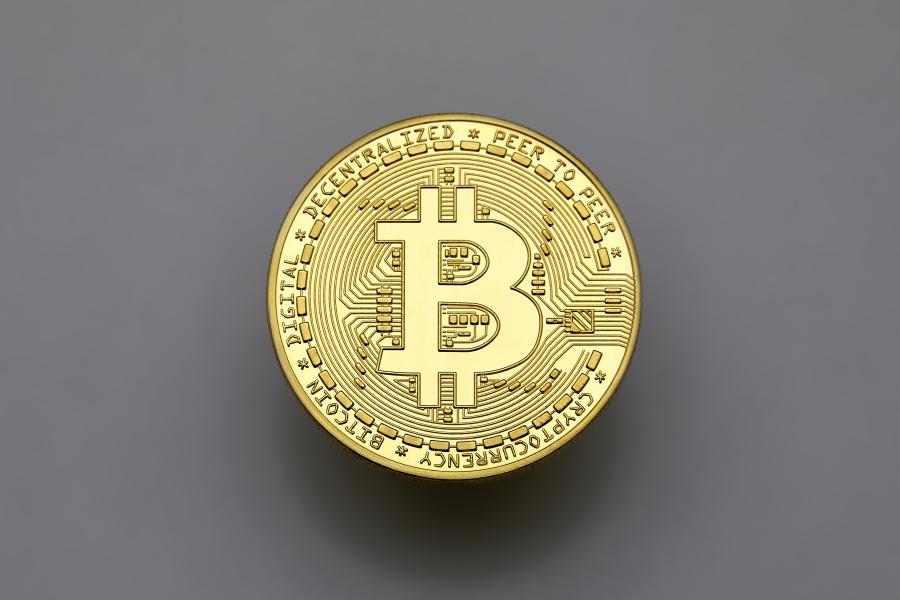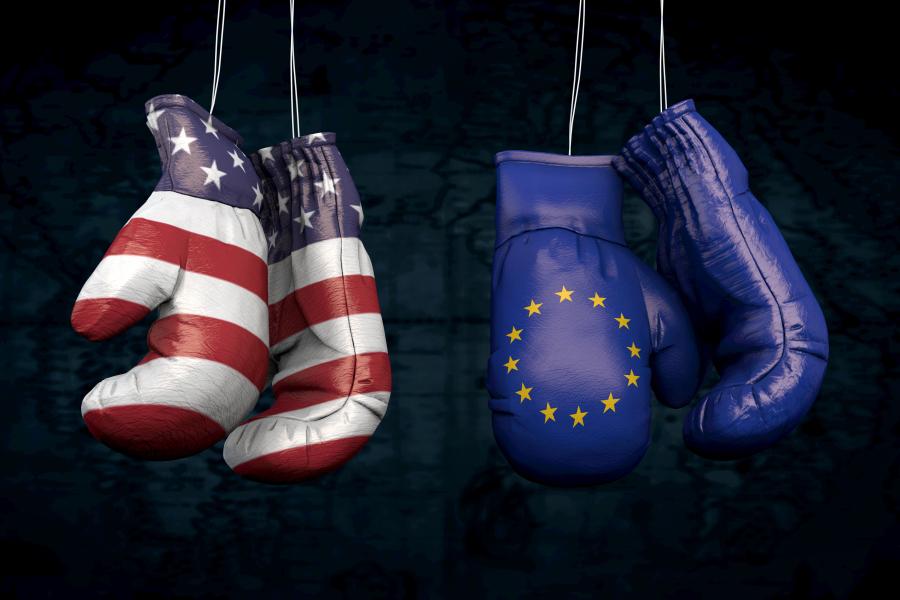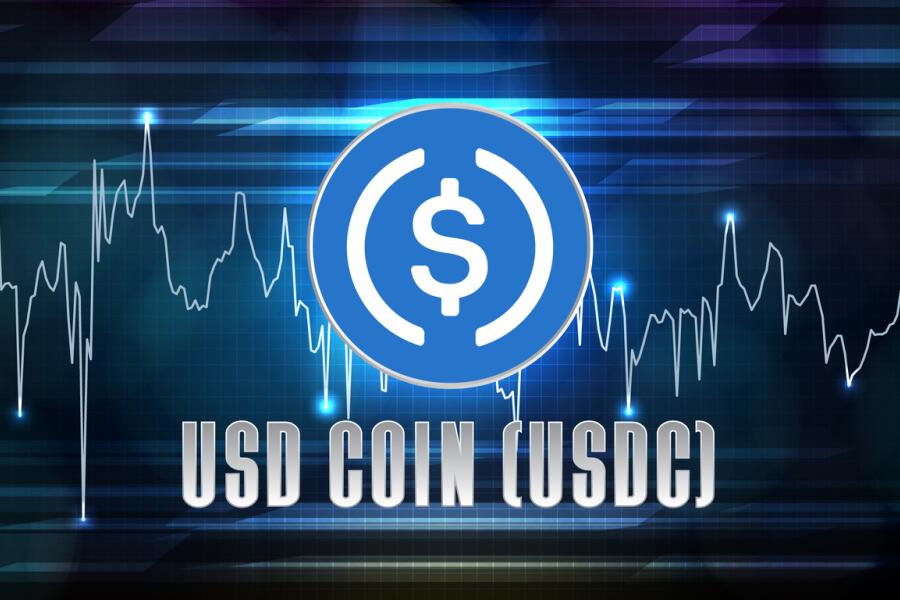Is the US finally coming to terms with crypto?
This week, our blockchain experts assessed the following topics:
- Is the US finally coming to terms with crypto?
- Decentralised Identity: Another important building block
- Protecting the Climate: A top priority among more and more blockchain enthusiasts
- Bitcoin ETF in the US: Things seem to be heating up
- Market Update: October has been Bitcoin month so far
Our bi-weekly Crypto Industry Report provides you with valuable information on the global crypto industry – picked and analysed by our blockchain experts.
Is the US finally coming to terms with crypto?
Crypto has been quite the talking point in the White House recently. As part of the so-called infrastructure bill, several provisions were proposed that would also affect the nascent blockchain industry. While many within the crypto sphere were rather unhappy with the provisions, the numerous amendments that were laid out did not full on fertile ground as the Senate sent the bill to the House – the second chamber of the US Congress. As of now, the bill has not been passed but is projected to pass by the end of October.
As of late, rumour has it that the Biden administration might issue an executive order that would have federal agencies study and develop recommendations for regulation the various areas of cryptocurrencies. With the executive order, the administration seems to be keen on having the entirety of the federal government involved in cryptocurrencies – with each federal arm adhering to its field of expertise and overseeing the part of the crypto industry that most suits it. This goes from blockchain derivatives, to stablecoins to crypto lending products to ransomware incidents and crypto asset taxation.
No signs of banning cryptos
Within the crypto space, people are not yet sure what to make of this. Some consider it a good sign that the entire federal government is looking to better understand crypto as a prerequisite to properly regulate it. Others are sceptical, especially since the government’s actions seem ambiguous. Besides not paying any attention to the proposed amendments to the infrastructure bill, the potential executive order won’t take advice from an expert that has knowledge in the crypto area and is an assistant to the president because of his personal crypto holdings.
But after all, the executive order shows no signs to ban cryptocurrencies outright. In that regard the order seems to resonate rather well with what Jerome Powell, the US central bank’s chairman recently said: “I have no intention to ban cryptocurrencies”.
Decentralised Identity: Another important building block
Most often crypto is associated with digital money that is decentralised as cryptocurrencies like Bitcoin and others show. Another promising innovation that blockchain will bring in conjunction with other technological components is a new form of digital identity – one that is also decentralised. As of now, digital identity is controlled and harboured by centralised entities like Facebook or Google.
More and more people have grown weary of the fact that this centralisation around digital identities brings problems. Not only do centralised servers represent a data honey pot for attackers, the tech giants providing these digital identity solutions live off the personal data from users. This is why digital identity has been a very pressing topic within the blockchain sector.
Decentralisation against manipulation
As a decentralised and tamper-proof technology for data validation and verification, the blockchain has played a key role in shaping research and implementation in the field of digital identities in recent years. In the near future, decentralised identity solutions will ensure that privacy is maintained throughout the creation, use, and deletion of any digital identity. This way, the user will be the entity managing one’s own digital identity and with it one’s own data. Personal data can and will only be disclosed if the respective identity holder has expressly authorised its. Independent control and security against manipulation will be guaranteed because the digital identity will no longer be managed on central servers.
One solution that has drawn some attention recently is “Sign-in With Ethereum”. The goal of this initiative is to make it possible to use Ethereum accounts to log in to any traditional web service. This would mean that people could use their crypto wallet to access online services instead of any traditional intermediary. While this would be beneficial for users as they get more control over their identity and data, crypto wallets and with them crypto as a whole could see another wave of adoption because of such functionalities.
Protecting the Climate: A top priority among more and more blockchain enthusiasts
Bitcoin, the mother of all cryptocurrencies, as well as the rise of non-fungible tokens (NFTs) has made people criticise the crypto sector for its purposed negative impact on the environment. While some within the Bitcoin industry oppose to this criticism by arguing that the innovation among miners will decarbonise bitcoin in the medium term, others concede to it but have started various initiatives to combat climate change.
The most ambitions approaches go for decentralised autonomous organisations (DAOs) that use DeFi tools to offset carbon emissions by building out a liquid market for carbon markets. Others, most notably DeFi’s spearhead project MakerDAO, are making the case for clean money – money that is backed by sustainable and climate resilient collateral. The CELO Foundation just launched a Climate Collective days ago, a community driven project to fight climate change by tokenising rainforests. That way, CELO’s stablecoin shall be increasingly backed by natural capital that helps sequester carbon from the atmosphere.
Another association that was started in April of this year is the Crypto Climate Accord. Inspired by the values of the Paris Climate Agreement, the consortium has over 150 supporters, spanning companies and individuals from the crypto and finance ecosystem. Together they want to make sure blockchain’s energy footprint can increasingly be made greener and greener. One of its supporters is the company Ripple that also just announced to commit $44 million to funding the adoption of environmentally conscious solar energy initiatives across the United States.
Bitcoin ETF in the US: Things seem to be heating up
The approval of a Bitcoin ETF in the US could finally come to pass. Several Bitcoin ETF filings are currently scheduled to be decided on by the Securities and Exchange Commission (SEC) throughout the last two weeks of October. As some industry experts suspect, the odds seem rather good that an approval could be just around the corner.
After all, the SEC’s chairman Garry Gensler has made several positive comments in the past two months. What also speaks in favour of a potential approval by the end of October is the fact that this time around, the Bitcoin ETF that have been proposed follow a format that is said to be favoured by the regulator. Concretely, the current proposals are filed under the Investment Company Act pf 1940 and they would hold Bitcoin futures as opposed to the digital asset itself. In the eyes of the SEC such a setup offers higher investor protection – a feature that the regulator puts a lot of emphasis on.
Difficult approval criteria
Trying to get a Bitcoin ETF approved in the US has been no easy task. For the past eight years, dozens of companies have tried to get an approval with the SEC for a new exchange-traded fund for Bitcoin. The first to seek approval were actually the Winklevoss twins that got rejected several times. Over the years the regulators have pointed to several issues like missing liquidity, market manipulation or the lack of oversight over crypto exchanges that made them turn down every application up until now.
With the recent positivity from Gensler himself, some believe that the SEC cannot possibly let down the industry once again, given the fact that the ecosystem has come a long way and several of the pain points have improved or vanished altogether. What they consider a sign of encouragement is the recent approval of a passive fund called the Volt Crypto Industry Revolution and Tech ETF. This product does not hold Bitcoin but invests in publicly listed companies that either hold a majority of their net assets in crypto or that make a majority of their profits in this space. So while some have their hopes high, others assume that an approval could likely be pushed to 2022.
Market Update: October has been Bitcoin month so far
Since the beginning of October, Bitcoin saw its price rally quite significantly, leaving the price range of around $43k. On its way up to, the cryptocurrency cut through major resistance levels and was only stopped by its major last resistance between $57.1k to $58k. Were this resistance to break, then Bitcoin’s price could potentially rally back to its previous all-time high that was reached in April of this year. As Q4 has historically been good for Bitcoin in terms of performance, the crypto community is currently hoping for a continuation of this trend.
With Bitcoin’s price rise, altcoins have suffered when measured in BTC. With the consequence that Bitcoin’s dominance increased in October. Crypto’s second biggest asset ether actually just lost a key support level against Bitcoin. Should the mother of all cryptocurrencies indeed go for another all-time high, then this trend can be expected to reverse once Bitcoin has reached its top and the money starts flowing into altcoins.
Bitcoin adoption increases
Beside its price, Bitcoin also made headlines because of an announcement by Bakkt, a Bitcoin marketplace and custodian. As the company announced it has entered into a partnership with Google to extend the reach and usability of crypto assets. Bakkt customers will be able to make Bitcoin payments through their virtual Visa debit card, wherever Google Play is accepted.
Considering Google’s dominance, this partnership is another step in the ongoing adoption of crypto assets. So, while the Tech giant is facilitating the use of Bitcoin starting in the US with Bakkt users, the cryptocurrency’s adoption is also making great strides in the most Bitcoin-focused part of the entire planet, which is El Salvador. As official numbers show, three million people have already downloaded the Chivo, the government’s officially sponsored bitcoin wallet. This actually means: In just one month, Bitcoin has banked more people than traditional banks have as there are more Salvadorans with a bitcoin wallet than a bank account.
Share post

Related Posts

To be continued: SEC pushes back at Coinbase
SEC pushes back against Coinbase's claim of no regulatory jurisdiction, stating the crypto exchange knowingly violated securities laws. Meanwhile, Gemini, owned by the Winklevoss twins, files a lawsuit against Digital Currency Group and CEO Barry Silbert alleging fraud and deception following the collapse of a lending venture. The Bank for International Settlements survey reveals that 93% of central banks are working on Central Bank Digital Currencies (CBDCs) which are seen as potential geopolitical policy tools and a challenge to the dollar's dominance. The race for a Bitcoin ETF intensifies, with BlackRock refiling its application featuring Coinbase as the market surveillance partner, as the Grayscale Bitcoin Trust's discount to net asset value narrows, potentially indicating the transformation into a proper ETF.

BlackRock fever: The ETF filing spree and institutional appetite
BlackRock filed for a Bitcoin ETF with the SEC, inspiring similar applications from firms like WisdomTree, Invesco, and Fidelity, and boosting Bitcoin's value. Traditional finance institutions such as Fidelity and Nasdaq are showing increased interest in crypto, with moves towards exchange and custody services. The defunct crypto exchange FTX, under new CEO John Ray III, is planning a potential revival after recovering significant assets. Meanwhile, the IMF is developing a global CBDC platform for cross-border transactions and DAI, a major stablecoin, is diversifying its backing from USDC to include real-world assets.

SWIFT explores blockchain interoperability
SWIFT has partnered with Chainlink to experiment with leveraging its infrastructure for transferring tokenized value across blockchain networks. The trials will address interoperability, regulatory challenges, and operational drawbacks for financial institutions in a blockchain environment. Chainlink will provide connectivity between private and public blockchains. SWIFT's findings will be published later this year.

China wants an Internet 3.0, while Hong Kong gears up for crypto trading launch
China is striving for advancement in Internet 3.0 technologies, with Beijing's white paper outlining plans to invest in the development of the metaverse and Web3 tech such as non-fungible tokens, but not cryptocurrencies due to the country's previous ban. Meanwhile, Hong Kong is launching its new crypto trading regulations, allowing retail investors to participate from June 1, 2023, with exchanges like Huobi Hong Kong beginning to offer spot trading to retail and institutional clients. Furthermore, the Cybersecurity and Technology Crime Bureau of the Hong Kong Police Force is launching a metaverse platform, 'CyberDefender', to educate the public about potential threats and crime prevention in the metaverse.

BRC-20: Innovating on Bitcoin is the new cool
A new Bitcoin “token standard” called BRC-20 is the hottest thing right now in the crypto space. It was introduced in March 2023 by a pseudonymous person called Domo. Bitcoin Request for Comment 20 (BRC-20) is an experiment that brings fungible tokens to the Bitcoin blockchain using the Ordinals protocol. Ordinals rely on ordinal theory, enabling the identification and tracking of individual satoshis within Bitcoin's existing supply, while also allowing them to be inscribed (associated) with data. Through this technique, satoshis (sats) are given ordinal numbers starting with zero. Anyone can add a script file to a sat to create and transfer a BRC-20 token on the Bitcoin blockchain. BRC-20 tokens are created using three functions: deploy, mint, and transfer.

US versus EU: Giants fighting for regulatory clarity
It is official now: The European Parliament voted overwhelmingly in favour of Markets in Crypto Assets (MiCA), legislation that will guide the crypto sector in all 27 European Union member states. 517 parliament members voted for it, while 38 voted against it. This approval makes Europe the first continent with comprehensive rules for cryptocurrencies. Also, it means that all EU member states will have unified crypto regulations. So, if a crypto business is approved in one EU member country, it could easily expand operations to another member state. The EU’s milestone was lauded by Binance as well as Kraken and Coinbase.

Ethereum: Another milestone reached with the Shanghai Update
On April 12, 2023, Ethereum successfully executed the planned Shanghai update also known as Shapella. The upgrade allows validators to unstake their staked ETH and withdraw their rewards, as well as staked ether if chosen. Now that another level of uncertainty has waned for the biggest smart contract blockchain, this new feature could attract more investors to stake their ether.

CFTC versus Binance:
Clash of the titans
The world’s leading crypto exchange by volume, Binance, alongside its CEO, Changpeng Zhao, and ex-Chief Compliance Officer, Samuel Lim, are being sued by the US Commodity Futures Trading Commission (CFTC).

Stablecoin USDC briefly lost its
peg. What do we learn from this?
One of the top stablecoins by market cap, USD Coin (USDC), de-pegged briefly from the US dollar on March 11 following the collapse of Silicon Valley Bank (SVB). Circle, the stablecoin’s issuer, held $3.3 billion in USDC reserves with the bank, which caused panic as investors rushed to withdraw their funds, assuming USDC could implode because of insufficient backing. However, the amount represented less than 8% of the stablecoin’s reserves.

Ethereum Shanghai upgrade pushed to April: Will there be too much selling pressure?
Ethereum stakers have been eagerly awaiting the Shanghai upgrade, which will enable them to withdraw their staked ether. Stakers’ funds have been locked since Ethereum introduced the proof-of-stake Beacon Chain in December 2020. The upgrade was originally slated to take place sometime in March but was pushed by about two weeks to April during a recent execution layer meeting.